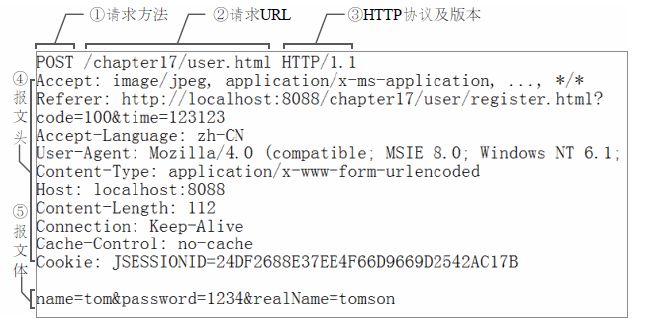在控制器的类定义及方法出定义出都可以标注 @RequestMapping:
- 类定义处:提供初步的请求映射信息。相对于 Web 应用的根目录。
- 方法定义出:提供进一步的细分映射信息。相对于类定义处的 URL。若类定义处未标注 @RequestMapping , 则方法定义处标记的 URL 相对于 Web 应用的根目录。
DispatcherServlet 截获请求后 , 就通过控制器上 @RequestMapping 提供的映射信息确定请求所对应的处理方法。
web.xml
1 xml version="1.0" encoding="UTF-8"?> 2 <web-app xmlns="http://xmlns.jcp.org/xml/ns/javaee" 3 xmlns:xsi="http://www.w3.org/2001/XMLSchema-instance" 4 xsi:schemaLocation="http://xmlns.jcp.org/xml/ns/javaee http://xmlns.jcp.org/xml/ns/javaee/web-app_3_1.xsd" 5 version="3.1"> 6 7 <context-param> 8 <param-name>contextConfigLocationparam-name> 9 <param-value>/WEB-INF/applicationContext.xmlparam-value> 10 context-param> 11 <listener> 12 <listener-class>org.springframework.web.context.ContextLoaderListenerlistener-class> 13 listener> 14 <servlet> 15 <servlet-name>dispatcherservlet-name> 16 <servlet-class>org.springframework.web.servlet.DispatcherServletservlet-class> 17 <load-on-startup>1load-on-startup> 18 servlet> 19 <servlet-mapping> 20 <servlet-name>dispatcherservlet-name> 21 <url-pattern>/url-pattern> 22 servlet-mapping> 23 web-app>
dispatcher-servlet.xml
1 xml version="1.0" encoding="UTF-8"?> 2 <beans xmlns="http://www.springframework.org/schema/beans" 3 xmlns:xsi="http://www.w3.org/2001/XMLSchema-instance" 4 xmlns:context="http://www.springframework.org/schema/context" 5 xsi:schemaLocation="http://www.springframework.org/schema/beans http://www.springframework.org/schema/beans/spring-beans.xsd http://www.springframework.org/schema/context http://www.springframework.org/schema/context/spring-context.xsd"> 6 7 <context:component-scan base-package="com.itdoc.springmvc"/> 8 9 10 <bean class="org.springframework.web.servlet.view.InternalResourceViewResolver"> 11 <property name="prefix" value="/WEB-INF/views/"/> 12 <property name="suffix" value=".jsp"/> 13 bean> 14 beans>
TestRequestMapping.java
1 package com.itdoc.springmvc; 2 3 import org.springframework.stereotype.Controller; 4 import org.springframework.web.bind.annotation.PathVariable; 5 import org.springframework.web.bind.annotation.RequestMapping; 6 import org.springframework.web.bind.annotation.RequestMethod; 7 8 /** 9 * @BLOG http://www.cnblogs.com/goodcheap 10 * @DESCRIBE RequestMapping 测试 11 * @AUTHOR WángChéngDá 12 * @DATE 2017-03-08 14:30 13 */ 14 @Controller 15 @RequestMapping("/springmvc") 16 public class TestRequestMapping { 17 18 private final static String SUCCESS = "success"; 19 20 /** 21 * 1.@RequestMapping 除了修饰方法还可以修饰类。 22 * 2.修饰类和修饰方法 23 * 1) 修饰类: 提供初步的请求映射信息, 相对于 WEB 应用的根目录。 24 * 2) 修饰方法: 提供进一步细化的请求映射信息, 相对于修饰类处的 URL。 25 * 若修饰类处未标注 @RequestMapping, 则修饰方法处的 URL 相对于 WEB 应用的根目录。 26 */ 27 @RequestMapping("/testreqmap") 28 public String testReqMap() { 29 System.out.println("I am TestRequestMapping's testReqMap method..."); 30 return SUCCESS; 31 } 32 }
映射请求参数、请求方式或请求头
@RequestMapping 的 value , method , params 及 headers 分别表示请求 URL , 请求方式 , 请求参数及请求头的映射条件 , 联合使用多个条件可让请求映射更加精确化。
method 请求方式常用有四种:
- method = RequestMethod.POST
- method = RequestMethod.GET
- method = RequestMethod.PUT
- method = RequestMethod.DELETE
1 package com.itdoc.springmvc; 2 3 import org.springframework.stereotype.Controller; 4 import org.springframework.web.bind.annotation.PathVariable; 5 import org.springframework.web.bind.annotation.RequestMapping; 6 import org.springframework.web.bind.annotation.RequestMethod; 7 8 /** 9 * @BLOG http://www.cnblogs.com/goodcheap 10 * @DESCRIBE RequestMapping 测试 11 * @AUTHOR WángChéngDá 12 * @DATE 2017-03-08 14:30 13 */ 14 @Controller 15 @RequestMapping("/springmvc") 16 public class TestRequestMapping { 17 18 private final static String SUCCESS = "success"; 19 20 /** 21 * 使用 method 属性来制定请求方式。 22 * 23 * @return 24 */ 25 @RequestMapping(value = "/testMethod", method = RequestMethod.POST) 26 public String testMethod() { 27 System.out.println("I am TestRequestMapping's testMethod method..."); 28 return SUCCESS; 29 } 30 }
params 和 headers 支持简单的表达式:
- param:表示请求必须包含名为 param 的请求参数。
- !param:表示请求不能包含名为 param 的请求参数。
- param != value: 表示请求包含名为 param 的请求参数 , 但其值不能为 value。
- params 可以有多个参数 , 用逗号隔开。示例:params = {"username", "age!=20"}
1 package com.itdoc.springmvc; 2 3 import org.springframework.stereotype.Controller; 4 import org.springframework.web.bind.annotation.PathVariable; 5 import org.springframework.web.bind.annotation.RequestMapping; 6 import org.springframework.web.bind.annotation.RequestMethod; 7 8 /** 9 * @BLOG http://www.cnblogs.com/goodcheap 10 * @DESCRIBE RequestMapping 测试 11 * @AUTHOR WángChéngDá 12 * @DATE 2017-03-08 14:30 13 */ 14 @Controller 15 @RequestMapping("/springmvc") 16 public class TestRequestMapping { 17 18 private final static String SUCCESS = "success"; 19 20 /** 21 * 可以使用 params 和 headers 来更加精确的映射请求, params 和 headers 支持简单的表达式。 22 * @return 23 */ 24 @RequestMapping(value = "testParamsAndHeaders", params = {"username", "age!=20"}, 25 headers = {"Accept-Language=zh-CN,zh;q=0.8"}) 26 public String testParamsAndHeaders() { 27 System.out.println("I am TestRequestMapping's testParamsAndHeaders method..."); 28 return SUCCESS; 29 } 30 }
Ant 风格资源地址支持3种匹配符:
- ?:匹配文件名中的一个字符。
- *:匹配文件名中的任意字符。
- **:匹配多层路径。
1 package com.itdoc.springmvc; 2 3 import org.springframework.stereotype.Controller; 4 import org.springframework.web.bind.annotation.PathVariable; 5 import org.springframework.web.bind.annotation.RequestMapping; 6 import org.springframework.web.bind.annotation.RequestMethod; 7 8 /** 9 * @BLOG http://www.cnblogs.com/goodcheap 10 * @DESCRIBE RequestMapping 测试 11 * @AUTHOR WángChéngDá 12 * @DATE 2017-03-08 14:30 13 */ 14 @Controller 15 @RequestMapping("/springmvc") 16 public class TestRequestMapping { 17 18 private final static String SUCCESS = "success"; 19 20 @RequestMapping("/testAndPath/*/abc") 21 public String testAndPath() { 22 System.out.println("I am TestRequestMapping's testAntPath method..."); 23 return SUCCESS; 24 } 25 }
@PathVariable 映射 URL 绑定占位符:
- 带占位符的 URL 是 Spring3.0 新增的功能 , 该功能在 SpringMVC 的 REST 目标挺进发展过程中具有里程碑的意义。
- 通过 @PathVariable 可以将 URL 中占位符参数绑定到控制器处理方法的入参中:URL 中的{xxx} 占位符可以通过 @PathVariable("xxx") 绑定到操作方法的入参中。
- 注意:@PathVariable("xxx") 中的 xxx 必须与占位符 {xxx} 中的 xxx 相同。
1 package com.itdoc.springmvc; 2 3 import org.springframework.stereotype.Controller; 4 import org.springframework.web.bind.annotation.PathVariable; 5 import org.springframework.web.bind.annotation.RequestMapping; 6 import org.springframework.web.bind.annotation.RequestMethod; 7 8 /** 9 * @BLOG http://www.cnblogs.com/goodcheap 10 * @DESCRIBE RequestMapping 测试 11 * @AUTHOR WángChéngDá 12 * @DATE 2017-03-08 14:30 13 */ 14 @Controller 15 @RequestMapping("/springmvc") 16 public class TestRequestMapping { 17 18 private final static String SUCCESS = "success"; 19 20 /** 21 * @PathVariable 可以来映射 URL 中的占位符到目标方法的参数中。 22 * @param id 23 * @return 24 */ 25 @RequestMapping("/testPathVariable/{id}") 26 public String testPathVariable(@PathVariable("id") Integer id) { 27 System.out.println("I am TestRequestMapping's testPathVariable method...\t id=" + id); 28 return SUCCESS; 29 } 30 }
